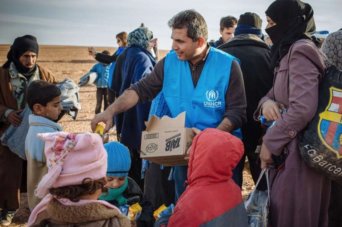- About
- Topics
- Picks
- Audio
- Story
- In-Depth
- Opinion
- News
- Donate
- Signup for our newsletterOur Editors' Best Picks.Send
Read, Debate: Engage.
| located: | South Sudan, Democratic Republic of the Congo |
|---|---|
| editor: | Bob Koigi |
News of the recent killings of six humanitarian aid workers in South Sudan has shaken the international community but reignited debate on the growing threats aid workers face even as they work tirelessly to alleviate the suffering of humanity in the wake of catastrophes.
In one of the most atrocious and brazen attacks to have been meted on humanitarian workers since the civil war erupted in 2013, the aid workers, some who had barely worked for a month in their new stations, were accosted by armed militia who forced them out of their cars, ransacked and looted before shooting them in the head and back and leaving them in the streets of one of South Sudan’s hinterlands.
This ambush is the latest in a series of attacks that have now killed 12 aid workers this year alone and 79 since the war broke out in 2013. Ironically the aid workers have been in the country to address the twin catastrophes of the effects of war and the unprecedented hunger that has put over 7.5 million lives at risk of starvation.
In the same week in the Democratic Republic of Congo, two foreign UN contractors who were in the country to understand the causes and sources of conflict with a view to looking at lasting peace, had earlier been kidnapped and were later found dead with one of them having been decapitated, an incident that has sparked international furore.
Growing conflicts occasioned by emergence of new threats to peace like mutating terror groups, scramble for limited resources and climate change have exacerbated humanitarian needs especially in Africa. Indeed according to statistics global humanitarian aid spending has skyrocketed to unprecedented highs, reaching 400 per cent since 2000 to hit over $30 billion currently. The number of international aid workers has also tripled during the same period.
As the aid workers navigate unforgiving terrain and work under harsh conditions to ameliorate the suffering of those affected, it is unacceptable that they have to face torture and death.
The international community must step forward and make a strong case, which goes beyond stern warnings, to parties to conflicts to respect those who have taken up the unenviable yet noble cause of offering humanitarian aid. The firm assertion by UN Secretary General Antonio Guterres following the attacks that the body would do everything possible to bring justice to the case must move beyond rhetoric to tough action. It is unimaginable what life would be without the aid workers who have rescued children caught in cross fires and spent nights in the cold to give those affected shelter and warmth. The International community must rally behind aid workers if we are to have a safe world.
